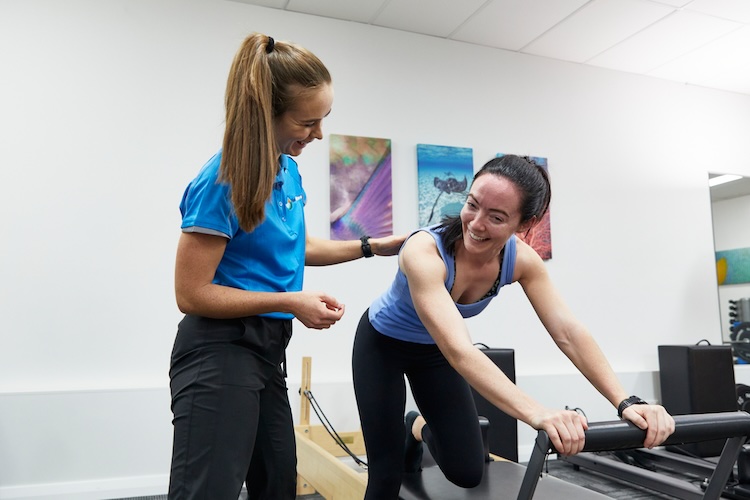Dealing with a chronic condition can be challenging, and navigating the healthcare system often adds to the stress.
We understand how important it is to get the right care without hassle.
As such, we’ve prepared this step-by-step guide to simplify the process of claiming Chronic Disease Management (CDM) or Team Care Arrangements (formerly known as EPC) benefits for physiotherapy or occupational therapy services at Next Wave Therapy, O’Connor (Fremantle area).
Quick Summary of Medicare Benefits
- Eligible Services: Up to five allied health services per year, including physiotherapy and occupational therapy.
- CDM Eligibility: Requires a chronic or terminal condition and a GPMP.
- TCA Eligibility: Requires a chronic or terminal condition, complex care needs, and a TCA involving at least two other healthcare providers.
- Rebate Amount: From 1 July 2024, the rebate is $60.35 per session.
- Claiming Process: Visit your GP for a referral, choose a registered provider, book your appointment, attend your session. Pay upfront and we process your rebate from Medicare for you.
What Services Can You Claim Under the CDM and TCA Programs?
Under the Chronic Disease Management (CDM) program in Australia, you can claim Medicare rebates for a variety of allied health services if you have a chronic or terminal medical condition.
Eligible patients can receive rebates for up to five allied health services per calendar year. The services you can access at Next Wave Therapy with an EPC or TCA are
- Physiotherapy (Code 10960)
- Occupational Therapy (Code 10958)
Understanding Medicare Benefits Eligibility Requirements?
To put it simply, the CDM program requires a chronic or terminal condition and a GPMP, while the TCA program requires a chronic or terminal condition, complex care needs, and a TCA involving at least two other healthcare providers.
Patients with both a GPMP and TCA are eligible for up to five Medicare-subsidised allied health services per calendar year, coordinated through their GP and allied health team.
CDM Eligibility
To be eligible for CDM services, a patient must meet the following criteria:
- Have a Chronic or Terminal Medical Condition
To be eligible for CDM services, you must have a chronic or terminal medical condition. A chronic condition is one that has lasted or is likely to last for at least six months. Examples include asthma, cancer, cardiovascular disease, diabetes, musculoskeletal conditions, and stroke.
Your GP will use their clinical judgement to determine if your condition qualifies.
- Have a General Practitioner Management Plan (GPMP)
You must have a GPMP, which is a structured plan of action agreed upon by you and your GP. This plan outlines your health and care needs, the services your GP will provide, and the actions you can take to manage your condition.
- Require Medicare-Supported Allied Health Services
With a GPMP, you can access Medicare-subsidised allied health services, such as physiotherapy, podiatry, dietetics, and more. This support helps you get the care you need to manage your condition effectively.
TCA Eligibility
To be eligible for TCA services, a patient must meet the following criteria:
- Have Complex Care Needs
If you have a chronic or terminal medical condition, you may also have complex care needs that require the support of multiple healthcare providers. This means you will need ongoing care from a team of healthcare professionals.
- Require Team Care Arrangements (TCA)
You will need a TCA, which involves your GP working with at least two other healthcare providers to coordinate your care. This ensures a team-based approach to managing your condition.
- Require Access to Additional Allied Health Services
With a TCA, you can access extra Medicare-subsidised allied health services beyond those available through the GPMP alone. These services can include exercise physiology, occupational therapy, psychology, and speech pathology, among others.
What Is the Medicare Benefits Rebate?
From 1 July 2024, the Medicare rebate for CDM plans relating is $60.35 per session.
If you need more sessions beyond the five covered by Medicare, you will need to pay the full fee or use private health insurance if available.
How to Claim Medicare CDM and TCA Benefits
1. Get a Referral from Your GP
Visit your GP to set up a CDM plan and Team Care Arrangements (TCA) if you’ve had a chronic condition for at least six months or a terminal condition that needs management from a multidisciplinary team. This plan will let you access Medicare rebates for allied health services.
2. Obtain a Referral Form
Your GP will give you a referral form from the Australian Government Department of Health and Aged Care or a form with all the required details.
3. Pick a Registered Provider
Choose an allied health professional who is registered with Medicare and has a valid Medicare provider number (such as ourselves).
4. Book Your Appointment
When booking, let your allied health provider know that you have a CDM/EPC referral.
5. Attend Your Session
You can have up to five allied health services per calendar year under this program.
6. Payment and Claiming
Simply pay the full amount upfront. We provide on-the-spot claiming, which means we process the rebate immediately and it is returned to your bank account by Medicare.
We are a Specialist Pain Clinic and do not bulk bill. Please refer to our schedule of fees which includes our understanding of financial hardship.
Conclusion
With up to five Medicare-subsidised sessions per year, you can receive care from our physiotherapists and occupational therapists.
To be eligible, you must have a chronic or terminal condition and a GPMP, and if you have complex care needs, a TCA will provide additional support.
Claiming these benefits involves a simple process: get a referral from your GP, choose a registered provider, book your appointment, and we’ll process your rebate claim on your behalf.
If you have any questions or need help with claiming CDM or TCA benefits, please feel free to contact our clinic. We are here to support you every step of the way and ensure you get the care you need.






